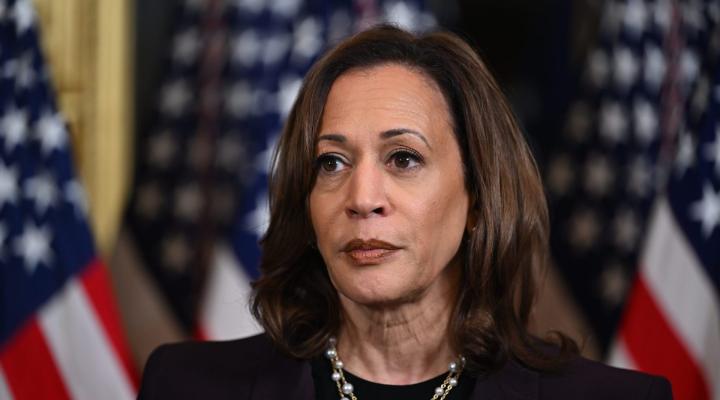Rumors indicate VP Kamala Harris’s potential 2024 running mate, Gary Peters, is concerned about Bitcoin supporters due to his strong opposition to cryptocurrency, fearing stricter regulations.

According to rumors, Vice President Kamala Harris is attempting to repair her relationship with the cryptocurrency community. Nevertheless, her most recent actions appear to be in direct opposition to her objectives.
The prospect of Harris selecting Michigan lawmaker Gary Peters as her running companion for the 2024 elections has caused concern among Bitcoin enthusiasts.
Peters is adamantly opposed to Bitcoin because he endorses the Money Laundering Act of 2023, which is designed to combat the illicit use of cryptocurrency for terrorism.
This posture has prompted apprehension among crypto enthusiasts, who are concerned about the possibility of more stringent regulations and a less conducive environment for digital currencies.
Peters underscored the danger of cryptocurrencies funding militant organizations and requested that the administration provide additional information regarding their strategies for preventing these activities.
Peters’ prospective endorsement by Harris is a strategic move. Peters is an appealing candidate due to his substantial Democratic base and strong union support in Michigan, a critical crossover state. Despite his controversial stance on cryptocurrency, Harris’s campaign could be fortified by the support of unions and other Democrats.
The cryptocurrency community is concerned about the potential inclusion of Peters on the Harris ticket. Harris has been advised to reconsider by industry executives, including Galaxy Digital chairman Mike Novogratz and XRP attorney John Deaton.
Novogratz provided Harris with guidance regarding Senator Elizabeth Warren’s stance on Bitcoin, who is known for her outspoken criticism. During her campaign against Warren, Deaton proposed that Harris, if she were to win the presidency, should remove SEC Chair Gary Gensler, who is perceived as anti-crypto.
Harris’s team maintains its resolve, despite the apprehensions of the crypto community. A prominent advisor to Peters underscored the importance of honoring Harris’s selection of a running colleague.
Rep. Dan Kildee (D-Mich.) emphasized Peters’s fervent support for unions as a critical factor. “Labor wants someone undoubtedly pro-union, and Gary fits that definition well,” Kildee asserted.
The cryptocurrency community has experienced anxiety as a result of Peters’ endorsement, the latter of whom has been vocal about the dangers associated with cryptocurrency.
There is widespread concern that Peters’s involvement in the administration could lead to more stringent regulations, which could impede the adoption and growth of digital currencies.
His steadfast stance on crypto control, rooted in apprehensions regarding its potential for illicit activities, starkly contrasts the objectives of numerous individuals in the crypto sector.
Advisors to Harris and Peters emphasize the overarching political strategy that is currently in effect. They contend that aligning with Peters provides political benefits, particularly in Michigan. Nevertheless, this agreement has not alleviated the concerns of those who are invested in the future of digital assets.
Harris’s decision is indicative of the intricate equilibrium she must preserve in order to appease a variety of constituencies. Her campaign needs to garner support from traditional Democratic bases, such as unions.
Nevertheless, the risk of alienating the burgeoning and influential crypto community is present, as the integration of digital assets into mainstream finance continues to grow.
The evolving political landscape surrounding cryptocurrency is underscored by the prospective selection of Peters. Political leaders must negotiate the complex landscape of regulation and innovation as digital assets become increasingly prevalent.
The political impact and long-term implications of Harris’s decisions on the cryptocurrency sector will be closely examined.
Kamala Harris’s decision to contemplate Gary Peters as her running mate has incited a heated debate within the cryptocurrency community. Peters’s anti-crypto stance is consistent with his legislative objectives; however, it opposes the interests of numerous advocates of digital assets.
Harris’s decision will be indicative of her strategic priorities and her approach to reconciling the diverse demands of her political coalition.
All stakeholders will intently monitor the implications of her decisions regarding cryptocurrency regulation as the 2024 elections approach.
